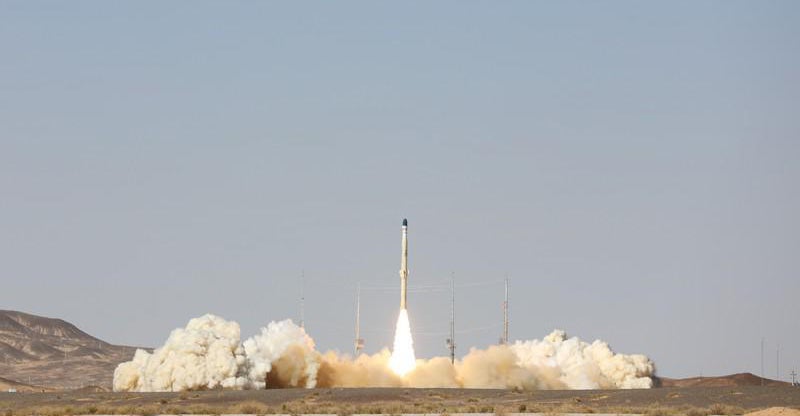
The news that Iran attempted but failed to launch another satellite into orbit from its Imam Khomeini Spaceport is probably not what most people noticed.It is understandable that it was not noticed. After all, the satellite launch was unsuccessful. A failed satellite launch is not as dangerous as Iran's continued violations of the 2015 nuclear agreement, also known as the Joint Comprehensive Plan of Action.It was also less dangerous than Iran-backed paramilitary units operations in Iraq against U.S. facilities and forces, often involving drones. This led to American airstrikes on those groups in Syria and Iraq this weekend.However, the satellite launch attempt was an important event.It is a sign that Iran continues to pursue a space program, an expensive and arguably unnecessary undertaking for a country with such economic challenges.Why is Iran participating in a satellite programme anyway?A space program can be of great utility to both civilians and military. Satellites can transmit civilian communications and even collect military intelligence.Tehran might be interested in any of these.There is another option: Iran may use its space program for long-range missile development. This is because it is more concerned with the launch vehicle for the satellite than the satellite itself.The truth is that the technology used to launch a payload into space is the exact same technology used to launch a nuclear warhead across the globe by an intercontinental missile.According to the 2019 Defense Intelligence Agency's report, Iran Military Power is indeed:Iran is still developing space launch vehicles (SLVs), with an increasing lift capacity. These boosters could reach the continental United States and can be used to carry ICBM missiles. Because SLVs are based on similar technologies, Iran's progress in space could reduce the time it takes to reach an ICBM.Tehran claims that the Iranian space program has been peaceful. It is more likely that the satellite program serves as a cover for an ICBM programme, which could one day target the United States.Every Iranian satellite launch, even those that fail, can potentially improve the Iranian engineers' ability to build a nuclear-armed ICBM.One of the major flaws of the Joint Comprehensive Plan of Action was the failure to include Iran's ballistic missile programme. This program continues largely unaffected.We must also keep in mind the ongoing nuclear program at Tehran.Iran has been actively resisting the restrictions in the Iran nuclear agreement for several years. This alarms the international community but particularly the Middle East where Iran seeks to dominate.Iran, for example, has increased its low-enriched uranium stockpile beyond the limits of the agreements, limited U.N. surveillance and installed more advanced centrifuges to enrich uranium.Tehran also refuses to adequately explain any suspicious findings made during international inspections. Given Iran's history of lying on nuclear issues, who knows what else could be happening?Iran is likely trying to exert diplomatic pressure on the United States with its satellite launches, in addition to ICBM development via its satellite program and nuclear activity beyond the nuclear agreement.Washington is currently involved in negotiations with Iran and other countries to revive the flawed nuclear agreement, which was abandoned by the United States in 2018 because of its many shortcomings.The White House was likely to remind it of the imminent Iranian missile threat by threatening another launch next week. This is in an effort to press the White House into making concessions on any future nuclear agreement.If Iran launches a satellite successfully in the next few weeks, while negotiations are ongoing, it would be able to gain additional diplomatic leverage at Vienna's negotiating table.Given Iran's history with nuclear weapons, a future Iranian ICBM attack is likely if long-range missile tests that look like satellite launches are not addressed in ongoing negotiations.Do you have a comment about this article? Send us an email at [email protected] with your comments. We may publish them in our We Hear You section. Include the article's URL or headline, along with your name, town, and/or state.
